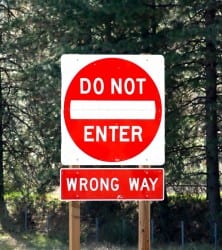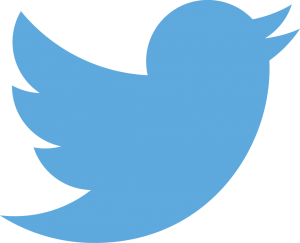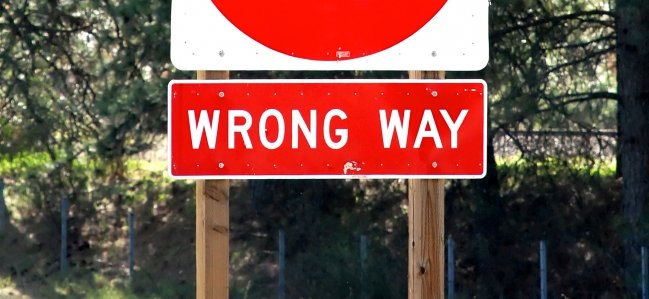2 Copyright Stories That Aren’t Stories
 Copyright news isn’t always the most exciting thing in the world. Sometimes, to get people to pay attention to it, copyright stories are blown out of proportion or exaggerated in their importance, especially outside of sites dedicated to the subject.
Copyright news isn’t always the most exciting thing in the world. Sometimes, to get people to pay attention to it, copyright stories are blown out of proportion or exaggerated in their importance, especially outside of sites dedicated to the subject.
This has been an increasing problem in recent. Ever since the SOPA and PIPA protests became a mainstream media phenomenon, news outlets and websites have looked for their next causes and outrages. However, nearly all of those stories have turned out to be false alarms and nothing more.
Whether this comes from a genuine understanding or something more sinister I don’t know, but the impact is the same. Unimportant stories get the lion’s share of media attention while more important stories are skipped over or pushed aside.
That even happens on this site. On Monday, in the 3 Count, I covered one of the stories below. The reason was, simply put, I was bombarded by emails and tweets about the story while I was on vacation, making it virtually essential that I say something about it.
However, the confines of a 3 Count is not a very good place to discuss the nuance of a news media story like this. So, I wanted to give more time and attention to two “major” copyright stories that are anything but.
In short, if you’re worried that your plagiarized jokes will be taken off Twitter or that an orphan works bill is on the horizon, you can relax. The sky, fortunately, isn’t falling.
Twitter is NOT Deleting Plagiarized Jokes
 Over the weekend, stories began to surface that Twitter was clamping down on plagiarized jokes and deleting stolen jokes en masse. Those stories largely came from headlines such as the one on The Verge, which reads “Twitter is Deleting Stolen Jokes on Copyright Grounds”.
Over the weekend, stories began to surface that Twitter was clamping down on plagiarized jokes and deleting stolen jokes en masse. Those stories largely came from headlines such as the one on The Verge, which reads “Twitter is Deleting Stolen Jokes on Copyright Grounds”.
While that’s a compelling headline and accurate to some degree, it’s also highly misleading. It makes it sound as if Twitter is taking some kind of new action against stolen jokes and is patrolling the service for plagiarized humor. That’s not the case.
What happened is actually quite simple. Freelance writer Olga Lexell noticed that several other Twitter accounts were using her tweet verbatim and without attribution (rather than, for example, retweeting her original tweet). She filed a Digital Millennium Copyright Act (DMCA) takedown notice with Twitter and had many, though not all, of the tweets removed.
Those removals were noticed by user @plagiarismbad who posted about it to their timeline, which is where the story got picked.
To be clear, nothing special happened here. Though it might seem strange to think of a tweet as copyrightable. There’s no character minimum for copyrightable work. If a tweet is creative enough to meet the requirements for copyrightability, then it’s copyrightable and Lexell has every right to defend it.
If a haiku poem can be copyrighted, then a tweet can to, at least under some circumstances. All in all, this is a tale of one author using an established legal process to remove a relatively small number of plagiarized (and likely spammy) Tweets.
For the record, in December 2014 (the last month data is available) Twitter withheld some 5,889 tweets on copyright grounds.
While there are interesting discussions to be had about the copyrightability of short phrases, such as the one Evan and I have on the upcoming podcast, there’s no change in Twitter policy and no need to worry that Twitter is coming for your unoriginal jokes.
Better Headline: Freelance writer uses DMCA to remove plagiarized Tweets.
There’s No Impending Orphan Works Bill
 This one is a bit harder to nail down, but various blogs and sites have been reporting that copyright holders, in particular visual artists, need to take action now before its too late as new orphan works legislation is inevitable.
This one is a bit harder to nail down, but various blogs and sites have been reporting that copyright holders, in particular visual artists, need to take action now before its too late as new orphan works legislation is inevitable.
The flames have been fanned by sites such as PetaPixel, which used the headline “Orphan Works Copyright Law Being Considered Again in the US”. That headline, like most that cause a stir, are technically accurate but highly misleading.
What did happen recently was that the U.S. Copyright Office released a report calling for new orphan works legislation (PDF). However, the is far from the first time this has happened. They produced a similar one in 2006 (PDF) that never ended up becoming law.
The reason is that the U.S. Copyright Office is not a legislative body. On most copyright matters, it can only make recommendations that Congress can (and often does) ignore.
Congress recently completed a two-year review of U.S. Copyright Law and orphan works never seemed to be seriously on the table. In fact, Maria Pallante’s desired “Next Great Copyright Act” also seems unlikely as Congress moves more to make smaller changes to issues such as safe harbor and music licensing.
This isn’t to say that there won’t be an orphan works bill in the future, there almost certainly will be, but it is far from imminent or immediate. While leaving comments on a U.S. Copyright Office report is great, it’s not going to derail the orphan works bill simply because there is no orphan works bill to derail. Yet.
Better Headline: U.S. Copyright Office Publishes Second Orphan Works Report
Bottom Line
Copyright is a sensitive subject. Whether you’re one who fears greater intrusion of copyright law or a creative who uses copyright to protect their work, it’s a subject that incites a great deal of passion.
And that passion, I feel, is a good thing. It can feed a great conversation that will only become more and more important as the Web becomes a larger part of our lives. However, that passion is only useful when and if it is directed accurately. Unfortunately though, when non-stories become major controversies, that simply isn’t possible.
So, if we want a healthy copyright debate, we should be careful that we don’t unwittingly distract from the more serious issues by focusing on non-events.
There are only so many hours in the day and even lunatics like me can only dedicate so many to copyright. As such, it’s important to ensure that that time is spent wisely.
Want to Reuse or Republish this Content?
If you want to feature this article in your site, classroom or elsewhere, just let us know! We usually grant permission within 24 hours.
